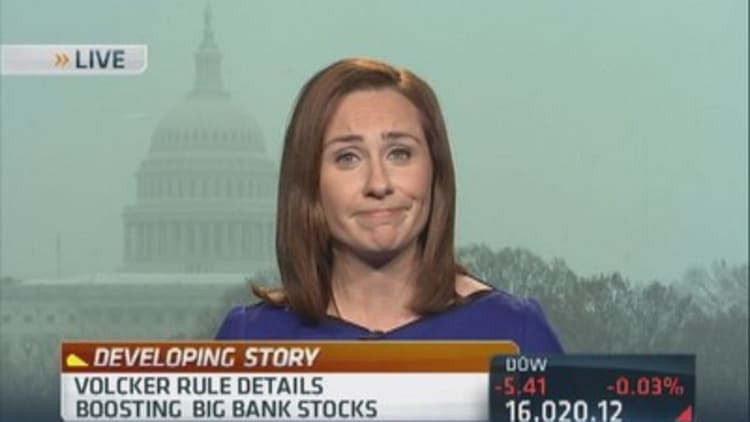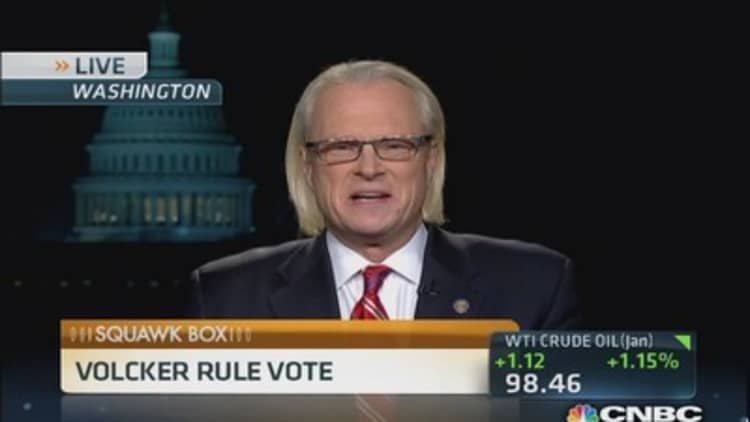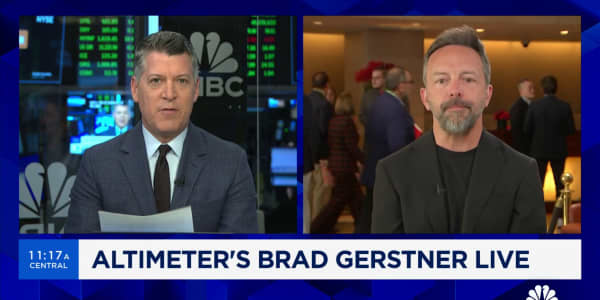
In an 892-page explanation of the so-called Volcker Rule, U.S. government regulators propose cracking down on a variety of bank hedging activities, including positions meant to offset a bank's overall risk.
They also proposed more detailed trading reports as well as CEO certification that large banks have complied with the rule's parameters.
The revamped Volcker Rule, a centerpiece of the Dodd-Frank Act meant to rein in the sort of risky trading that contributed to the 2008 financial crisis, has been the subject of dispute among government agencies, which are expected to vote on its passage on Tuesday morning in Washington despite wintry conditions that shut down the federal government.
The rule, which was toughened in recent weeks at the urging of certain regulatory officials, is expected to pass.
(Read more: Why I'm voting for Volcker Rule: CFTC's Chilton)
But whether the current iteration of Volcker will actually discourage risky bank trading activities—or, indeed, survive the legal challenges the industry is expected to mount—will take years to become clear.
Broadly speaking, the reissued rule bans banks from engaging in proprietary trading, which it defines as acting in the markets as a principal player on its own behalf. But there are numerous exceptions to the rule.
Securities bought on behalf of a corporate client undertaking an initial public offering, for instance, would be safeguarded, as would any so-called market-making activities related to client needs in general.

(Read more: Back on top: How atroubled bank returned to life)
The proprietary trading of most government bonds, ranging from Treasurys to muni bonds, is deemed acceptable; the trading of a finite group of foreign sovereign securities is, too. And under a concept known as "liquidity management," banks are permitted to hold any positions that help ensure their near-term liquidity, or cash, needs.
The rule has been the subject of intense interest on Wall Street.
The five federal agencies who wrote it – the Federal Reserve, the Federal Deposit Insurance Corp, the Securities and Exchange Commission, the Commodity Futures Trading Commission, and the Office of the Comptroller of the Currency – received more than 18,000 comments after the initial draft was presented to the public two years ago.
(Read more: Don't sweat the Volcker rule:Pro)
In anticipation of the final rule, most banks divested themselves of any dedicated proprietary-trading desks, selling entire subsidiaries to other companies, replacing internal capital with client funds, or simply letting traders go.
If passed Tuesday, the Volcker Rule will be phased in over a two-year period, with the majority of it becoming effective by the middle of 2015.






